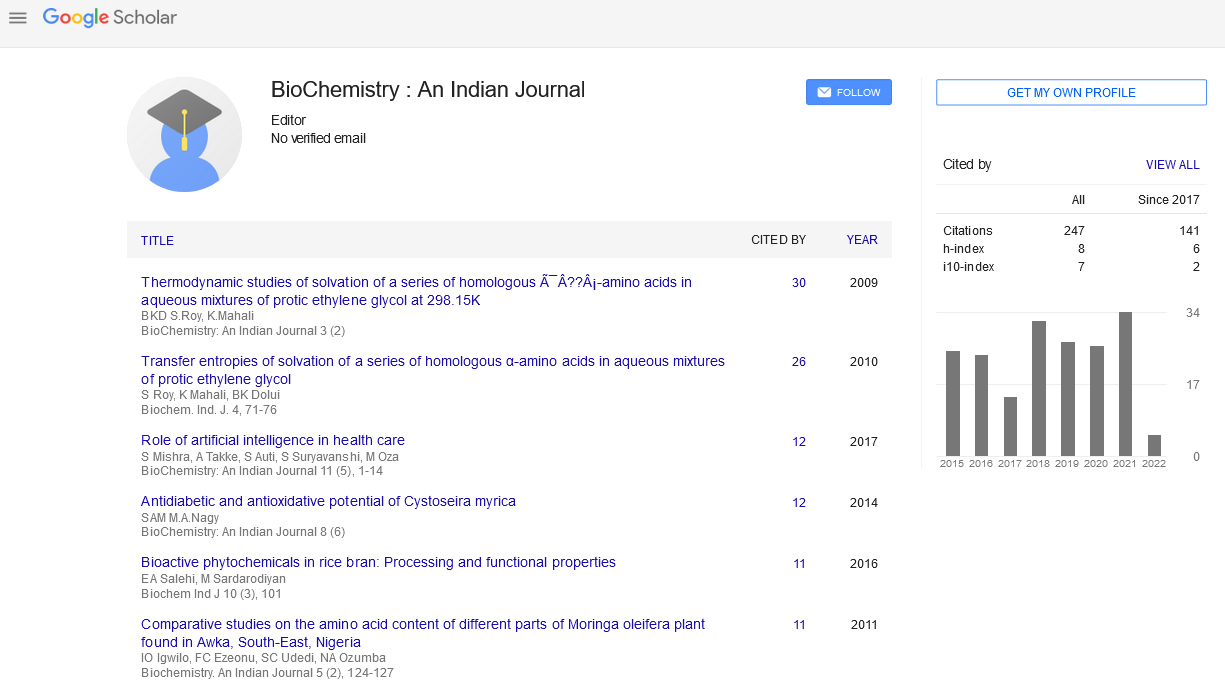Abstract
Dietary effect ofmustard (Brassica nigra L) protein hydrolysate on blood and tissue lipids and lipid peroxidation in hypercholesterolemic rats
Author(s): Arundhati Biswas, Pubali Dhar, Anadi Roy Chowdhury, Santinath GhoshDietary protein is one of the most primary energy containing micronutrient consumed on a routine basis in humans. The influence of dietary mustard protein hydrolysate (MPH, protein content 88.5%), produced from dehulled, defatted mustardmeal on blood and tissue lipid profile and lipid peroxidation has been assessed in hypercholesterolemic rats. To evaluate their hypocholesterolemic and antioxidative activity in vivo, we fed 18% MPH with 2% cholesterol in comparison with casein to rats for 28 days. There was no significant difference in growth rate and food efficiency ratio between the two groups during the four weeks experimental period. The total cholesterol, TAG and LDL cholesterol level were decreased at 21%, 38.4% and 31.6% level respectively in the experimental group than the control casein group. There was a significant lowering of LDL and EM lipid peroxidation in the experimental group (MPH containing cholesterol) than the corresponding control casein group. Liver lipid profile of the experimental group was also improved than the corresponding control group. Therefore, our results indicate that MPH can be used in various food formulations as hypocholesteromic and antioxidative component.

